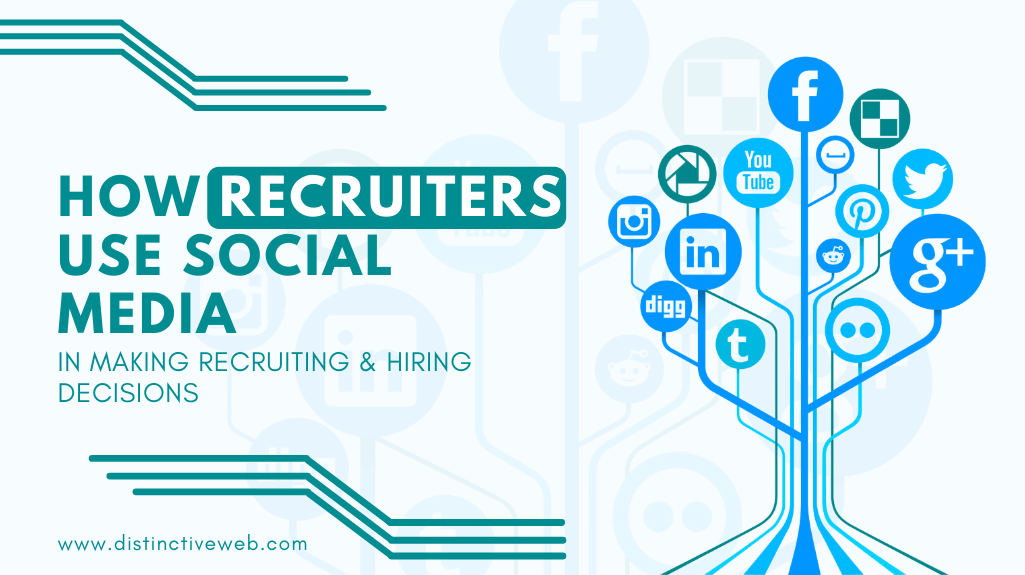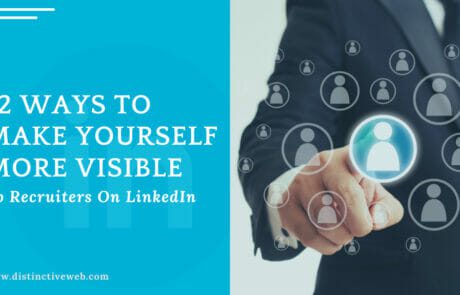
Gone are the days when social media was a “new-fangled” concept. With close to 3.6 billion people on social media today, it should come as no surprise that 70% of employers use social media when screening potential employees. But, how recruiters use social media is still misunderstood by many job seekers.
The recruitment process has always been crucial in maintaining a company’s competitive edge. And it’s much more relevant today because of the dynamic and fast-paced nature of the digital era.
Say Hello to “Cybervetting” the New HR Buzzword
There has been a growing trend in employers’ use of social media networking sites such as Twitter, Facebook, and YouTube to attract top talent. For instance, Microsoft has dedicated a YouTube channel that gives a sneak peek of what to expect once you become an employee.
That’s not all; employers have gone further to include a new tactic in their screening process.
Cyber vetting, also known as social media recruiting, involves scouring candidates’ social media profiles to gauge a job applicant’s employability. As a job seeker, you must be wondering why companies do it in the first place.
There’s this famous adage “that there are only two instances in which a person is deemed perfect, i.e., when one is born and, on their CV.,”
Many times, even with a cover letter and a resume, recruiters can’t tell whether you’d be an excellent fit for the position. During a study on motivations for cyber vetting, recruiters gave the following reasons.
How Recruiters Use Social Media in Making Recruiting Decisions
Social media serve as data hubs brimming with information regarding job seekers’ qualifications. Let’s not forget that the largest workforce comprises millennials and Gen Z, which spends an average of 2 ½ hours daily on social media. It’s only practical that recruiters go to where the job seekers are. Just remember that when they do, what they see or don’t see matters.
Online presence matters
Based on a social media survey in 2017, 47% of employers said that the absence of social media presence influenced their decision on whether to hire a candidate or not. With about 7 out of 10 Americans having an online presence, recruiters expect candidates to own social media profiles.
Are you who you claim to be?
Primarily, prospective employers use cyber vetting to confirm applicants’ qualifications because, in some instances, recruiters have discovered alarming inaccuracies in job seekers’ information.
One instance was when Aleksey Vayner, a Yale graduate, went viral because of his job application video, in which he portrayed himself as a professional athlete and author. His video prompted a background investigation, which revealed his untrue qualifications, including being “an author” as the purported book had been plagiarized.
Keep it Professional
As a job seeker, social media is a space where you let loose both literally and figuratively. However, you must keep in mind that anything you post on the internet is public information, which means that your online posts could be detrimental.
In 2019, Michael Tews, an associate professor of hospitality management, led a study investigating the impact of social media content on hiring decisions. Some of the findings included:
- Candidates who came off as self-absorbed on social media were less likely to get hired
- People who posted contentious topics on social media could be viewed as argumentative, affecting their employment suitability
- Any posts promoting substance abuse also negatively impacted hiring prospects
A survey by CareerBuilder echoed similar sentiments. The hiring managers cited some of the reasons that they chose not to hire a person because of their social media, which included:
- Provocative content
- Posts on drug use
- Derogatory comments
- Poor communication
Social Media Content Tips for Job Seekers
While you might be tempted to delete your social media profile in fear of losing that dream job, there are other effective ways of making social media work for you.
- Perform a google search on yourself to see what information is out there
- Consider switching to private settings for specific profiles
- Consistently review your social media profile in the eyes of a prospective employer
- Once you do this, it would be best to take down any controversial content
- Work towards posting valuable content
As a Job Seeker, You Must Make the Most Out of Technology
Suppose you’re struggling with creating a professional profile or in your overall job search. In that case, A trusted career service could offer job-seeking support to help you build an authentic online persona and to reinvent yourself.
Finally, always remember that employers are watching, so before you post that work meme online, ask yourself whether it will cost you that dream job.
Originally published on this blog on March 2, 2014, this article has been updated and republished with information about how recruiters use social media for hiring in 2021 and beyond.









